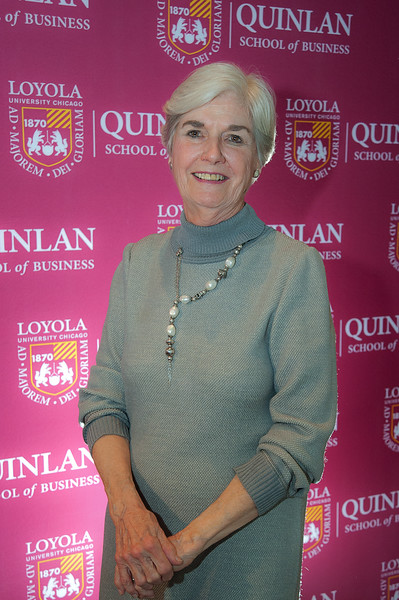- May 2, 2016
- 11:25 am
- Andrew Keyt
- no comments
A Look Back with Center Co-Founder, Moni Murdock
In 1991, the Chicago Tribune wrote a story about the establishment of Loyola’s Family Business Center, and interviewed Moni Murdock, her husband, Bud, and John Ward. Moni was one of the founding thought and practice leaders for the Loyola Family Business Center. A licensed clinical social worker in private practice and former Loyola School of Social Work faculty member, Moni – along with Bud (an attorney and Loyola Law School professor) and John (family business advisor and former Loyola Business School professor) – founded Loyola’s Family Business Center. In the blog that follows, Moni tells the story of the Center’s early days.
It started with John [Ward] – with his thinking and research on family business. In the mid to late 80s, John organized some programs through Loyola’s Business School and after one of these programs, John invited me to join a Midwest Family Business Study group, which Bud later joined. There were members from Ohio, Michigan, Wisconsin, Minnesota and Illinois. The three of us got to know each other through participation in this learning community.
In June of 1989, Bud organized a continuing legal education satellite program in New York focused on family businesses. The program was unique because, in addition to legal aspects, Bud asked John and me to participate – to deal with business structure and family relationships. The three of us enjoyed the experience of working together and agreed to a follow up meeting at our home to talk about other ideas for collaboration.
The meeting led to a plan – to establish a Family Business Center at Loyola University. We knew we needed university support and some seed money to get started. Bud approached Jim Wiser, provost in charge of academic affairs and Nina Appel, Dean of the Law School while John talked with Don Meyer, Dean of the Business School. Each committed $3500 to fund the start up.
We wanted to create a multidisciplinary center to develop insights and research on the different perspectives that influence the complex metasystem of the family business. To this end, we originally structured the center as an independent institute, not as a component of any particular school. This all occurred in the fall of 1989.
After the New Year, we began having regular, weekly meetings to brainstorm and define the scope of the center, develop our mission statement, create marketing tools and gather names of potential members. We met at Clark’s Restaurant in downtown Evanston and had a “regular booth” as our quasi office.
We decided we wanted to create a program dedicated to promoting better understanding, communication and planning for the successful continuity of responsible family enterprise. We wanted to bring multidisciplinary input to the table including business, finance, law, psychology, family relationships, organizational theory and ethics. We wanted to create a learning community for family businesses that would provide expert and peer insights in a personal and confidential environment that would deepen over the years.
From the beginning we were committed to creating small peer support groups of ten to twelve members, who would meet monthly to discuss issues in depth in a confidential setting. We were unique in including all family members and designated key non-family managers in our membership and programming. Other existing family business programs included only the CEO or sometimes the spouse and/or successor.
We decided to target midsize family businesses with at least $20 million in sales and 50 plus employees with two generations active in the business. Our hope was that businesses would maintain their membership over many years so as to create a long-term learning community. Our desired startup date was January 1991
By mid to late summer, we were recruiting families but still had a long way to go to before we reached our goal of 50 members. We realized we did not have the time to do this on a volunteer basis; we were fortunate at this time to hire Drew Mendosa who joined the team and focused his efforts on bringing our original members on board. Drew later became the first Director of the Center.
Our first all day program was held January 25, 1991 with 32 member families present. Of those 32 families, 24 family businesses had more than one participant present and 13 had three or more of their family enterprise in attendance. Twenty-five years later, seven of the original family businesses are still active members today!
We started six peer advisory groups within seven months of startup; I facilitated three groups and brought in three other facilitators for monthly meetings. One facilitator was from Minneapolis and stayed at our home when he came in for his group. Five of these groups continue to meet today!
It has been very satisfying to participate in creating such a wonderful ongoing learning community. I have loved working with the peer groups and cherish the relationships that have continued till today!
